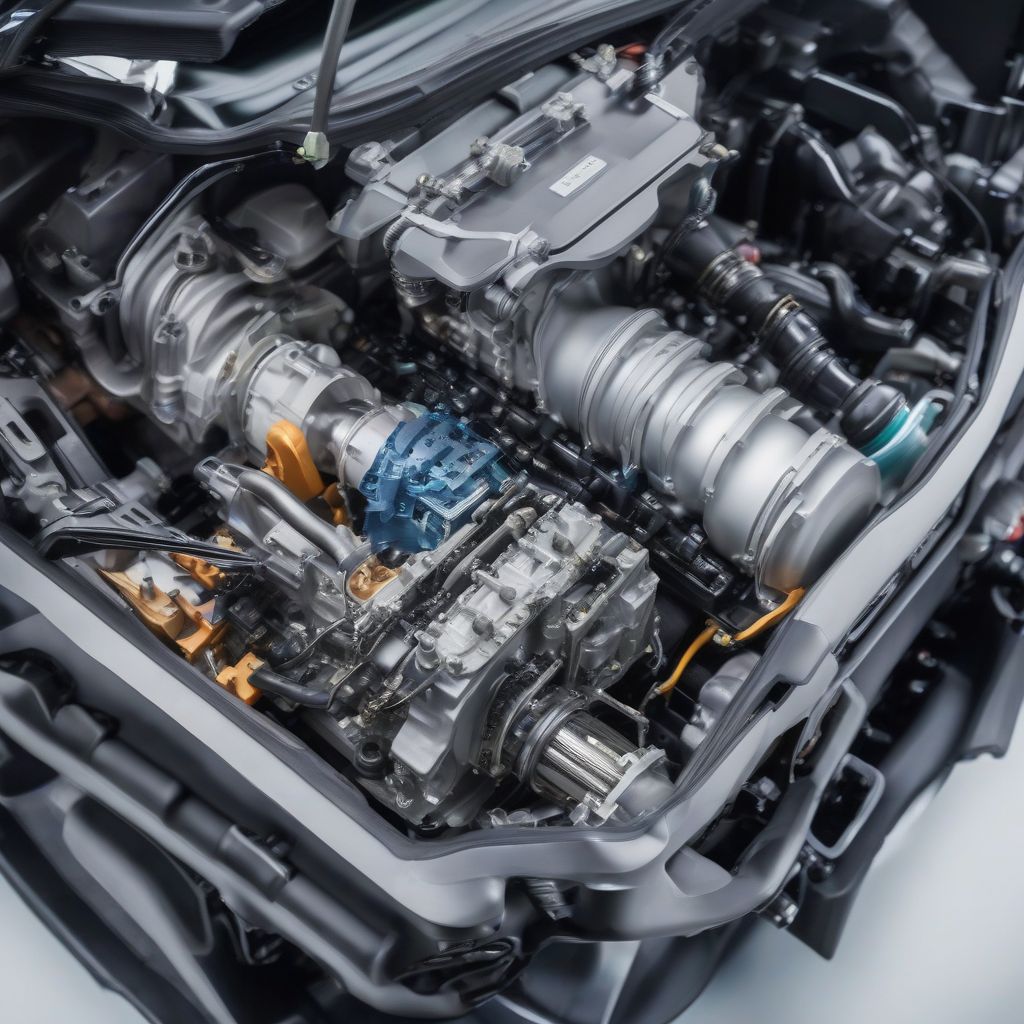How Much Gas Do Hybrid Cars Save? Unveiling the Fuel Efficiency Truth
In a world increasingly conscious of its carbon footprint and seeking ways to mitigate the escalating costs of traditional fuel sources, hybrid cars have emerged as a beacon of hope. These marvels of automotive engineering promise a harmonious blend of power and sustainability, but how much gas do hybrid cars actually save? Let’s delve into the intricacies of hybrid technology and uncover the truth behind their fuel efficiency.
Understanding the Hybrid Advantage
Hybrid cars distinguish themselves from their conventional counterparts by incorporating two distinct power sources: a gasoline engine and an electric motor. This synergistic duo works in tandem to optimize fuel consumption and reduce emissions.
Imagine cruising through city streets, your hybrid seamlessly switching to electric power, its gasoline engine slumbering silently. This electric boost not only conserves fuel but also curtails harmful emissions, making city driving cleaner and more efficient.
On the open highway, the gasoline engine takes the reins, providing the necessary power for sustained high-speed travel. The electric motor lends a helping hand during acceleration, further enhancing fuel efficiency.
How Hybrids Achieve Fuel Efficiency
-
Regenerative Braking: Hybrids possess an ingenious trick – they recapture energy typically lost during braking. When you apply the brakes, the electric motor transforms into a generator, converting kinetic energy into electricity stored in the battery. This stored energy then powers the electric motor, reducing the load on the gasoline engine.
-
Engine Assist: Remember that electric motor? It’s not just for show! During acceleration, the electric motor assists the gasoline engine, providing an extra surge of power. This collaborative effort reduces the strain on the gasoline engine, leading to improved fuel economy.
-
Auto Start-Stop: Say goodbye to idling! Hybrids are equipped with an auto start-stop system that automatically shuts off the gasoline engine when the vehicle comes to a halt. As soon as you release the brake, the engine seamlessly restarts, saving fuel and reducing emissions at traffic lights and in congested traffic.
gas.areview.net/wp-content/uploads/2024/09/hybrid-car-engine-66e005.jpg" alt="Hybrid Car Engine" width="1024" height="1024">Hybrid Car Engine
Factors Influencing Hybrid Fuel Savings
While hybrid cars undoubtedly offer impressive fuel efficiency, several factors can influence the extent of your savings:
1. Driving Conditions
Your driving style and the terrain you frequent play a significant role in determining your hybrid’s fuel economy. City driving, characterized by frequent stops and starts, allows the electric motor to shine, maximizing regenerative braking and reducing reliance on the gasoline engine. Highway driving, on the other hand, relies more heavily on the gasoline engine, resulting in slightly lower fuel efficiency.
2. Hybrid Type
Not all hybrids are created equal. Mild hybrids offer a modest boost in fuel efficiency, while full hybrids and plug-in hybrids (PHEVs) deliver more substantial savings. PHEVs, with their ability to be plugged in and charged, can even operate solely on electric power for a limited range.
3. Vehicle Maintenance
Just like any vehicle, proper maintenance is crucial for optimal fuel efficiency. Regular servicing, including tire pressure checks, oil changes, and air filter replacements, ensures your hybrid continues to perform at its best.
The Verdict: Real-World Fuel Savings
Hybrid cars live up to their fuel-efficient reputation, but the exact amount of gas you save varies depending on the factors mentioned above. On average, you can expect to save 40-60% on fuel compared to a comparable gasoline-powered vehicle. However, some hybrid models boast even more impressive fuel economy figures.
For instance, the Toyota Prius, a pioneer in the hybrid realm, consistently ranks among the most fuel-efficient vehicles on the market, achieving over 50 miles per gallon. Similarly, the Honda Insight and Hyundai Ioniq have garnered praise for their exceptional fuel efficiency.
Conclusion
In a world grappling with climate change and seeking sustainable transportation solutions, hybrid cars emerge as a compelling option. Their ability to significantly reduce fuel consumption not only translates to financial savings for drivers but also contributes to a cleaner environment.
While the exact amount of gas you save depends on various factors, one thing remains certain: hybrid cars are paving the way for a greener and more fuel-efficient future.
